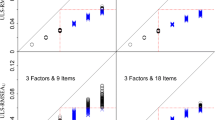Abstract
Management information systems serve business organizations by providing information for decision making. Various types of systems serve different types of decision contexts. The philosophic basis of information system support is discussed. The rational (or normative) philosophy is widely used, and appears in business theory in the form of agency theory and transaction cost analysis. While this approach has been valuable in some contexts, there are other contexts where the rational approach has limited in utility for real business decision making. Decision makers need to consider subjective factors to enable them to cope with the high levels of uncertainty, incomplete understanding, and imperfect data typical of dynamic open systems. There are alternative philosophies upon which to base decision-making that are appropriate for specific decision contexts. Churchman identified empirical, multi-perspective frameworks, dialectic, and cause-and-effect inquiring systems as alternatives to the rational (normative) system. A number of information system tools, such as decision support systems, expert systems, and group support systems can be supported by models based on philosophies other than rational models. A more empirically based philosophy, with decision-makers balancing hypothesis generation and observations of performance, is often more appropriate. The relationship between Churchman's inquiring systems and information system types are discussed.
Similar content being viewed by others
References
Becker GS. Irrational behavior and economic theory. Journal of Political Economics 70:1–13, 1962.
Bose U, Davey AE, Olson DL. Multi-attribute value methods in group decision support systems: Past applications and future potential. Omega 1997;25(6):691–706.
Checkland PB. Systems Thinking, Systems Practice. Chichester, UK: John Wiley and Sons, Inc, 1981.
Churchland PM. Matter and Consciousness: A Contemporary Introduction to the Philosophy of Mind. Cambridge, MA: A Bradford Book, 1997.
Churchman CW. The Designing of Inquiring Systems. New York: Basic Books, 1971.
Cohen MD, March JC, Olsen JP. A garbage can model of organizational choice. Administrative Science Quarterly 1972; 17:1–25.
Descartes R. The Philosophical Works of Descartes. Translated by E. S. Haldane & G. R. T. Ross, Vol. 1, Cambridge: Cambridge University Press, 1955.
Georgescu-Roegen N. Choice, expectations, and measurability. Quarterly Journal of Economics 1954;68(4):503–534.
Gouldner AW. The Coming Crisis of Western Sociology. New York: Basic Books, 1970.
Hämäläinen RP. Computer assisted energy policy analysis in the Parliament of Finland. Interfaces 1988;18(4):12–35.
Islei G, Lockett G, Cox B, Stratford M. A decision support system using judgmental modeling: A case of R&D in the pharmaceutical industry. IEEE Transactions on Engineering Management 1991;38(3):202–209.
Jensen MC, Meckling WH. Theory of the firm: Managerial behavior, agency costs and ownership structure. Journal of Financial Economics 1976;3:305–360.
Kahneman D, Slovic P, Tversky A, eds. Judgment under Uncertainty: Heuristics and Biases. Cambridge, UK: Cambridge University Press, 1982.
Leibniz GW. Discourse on Metaphysics. Translated by P.G. Lucas & L. Grint, New York: Barnes & Noble, 1953.
Lindblom C. The science of muddling through. Public Administration Review 1959;19:79–88.
Lindblom CE, Braybrook D. A Strategy of Decision Policy Evaluation as a Social Process. Glencoe, IL: The Free Press, 1963.
MacCrimmon KR, Wehrung DA. Taking Risks: The Management of Uncertainty. New York: The Free Press, 1988.
Meiklejohn JMD. Critique of Pure Reason: Immanuel Kant. Amherst, NY: Prometheus Books, 1990.
Meyer J, Rowan B. Institutionalized organizations: Formal structure as myth and ceremony. American Journal of Sociology 1977;83:440–463.
Morgenstern O. Thirteen critical points in contemporary economic theory: An interpretation. Journal of Economic Literature 1972;10:1163–1189.
Myrdal G. Against the Stream: Critical Essays on Economics. New York: Pantheon, 1979.
Olson DL, Courtney JP, Jr. Decision Support Models and Expert Systems. Houston: Dame Publications, 1998.
Payne JW, Bettman JR, Johnson EJ. The Adaptive Decision Maker. New York: Cambridge University Press, 1993.
Quesnay F. General rules for the economic government of an agricultural kingdom, from Tableau economique, 1758. Translated and extracted in K.W. Kapp & L.L. Kapp, History of Economic Thought. New York: Barnes & Noble, 1963, pp. 103–109.
Roszak T. The Cult of Information: A Neo-Luddite Treatise on High-Tech, Artificial Intelligence, and the True Art of Thinking. Berkeley, CA: University of California Press, 1994.
Simon H. Rational decision making in business organizations. American Economic Review 1979;69:493–513.
Simon H. Rationality in psychology and economics. In: Hogarth RM and Reder MW, eds. Rational Choice: The Contrast between Economics and Psychology. Chicago: University of Chicago Press, 1987, pp. 25–40.
Smith A. In: Cannan E, ed. The Wealth of Nations. New York: The Modern Library, 1937.
Spencer H. Herbert Spencer on Social Evolution: Selected Writings. Chicago: The University of Chicago Press, 1972, reprint.
Turban E. Decision Support and Expert Systems, 2nd ed. New York: MacMillan, 1990.
Tversky A, Kahneman D. Rational choice and the framing of decisions. In: Hogarth RM and RederMW, eds. Rational Choice: The Contrast between Economics and Psychology. Chicago: University of Chicago Press, 1987, pp. 67–94.
Weber MB. Economy and Society. In: Roth G and Wittich C, eds. Berkeley, CA: University of California Press, 1978.
Wildavsky A. But is it True? A Citizen's Guide to Environmental Health and Safety Issues. Cambridge, MA: Harvard University Press, 1997, third printing.
Williamson OE. Markets and Hierarchies: Analysis and Antitrust Implications. New York: Free Press, 1975.
Williamson OE. The economics of organization: The transaction cost approach. American Journal of Sociology 1981;87: 548–577.
Williamson OE. The Economic Institution of Capitalism. New York: Free Press, 1985.
Williamson OE. Antitrust Economics: Firms, Markets, Relational Contracting. New York: Basil Blackwell, 1987.
Zey M. Criticisms of rational choice models, In: Zey M, ed. Decision Making: Alternatives to Rational Choice Models. Thousand Oaks, CA: Sage, 1992, pp. 9–31.
Zey M. Rational Choice Theory and Organization Theory: A Critique. Thousand Oaks, CA: Sage, 1998.
Author information
Authors and Affiliations
Rights and permissions
About this article
Cite this article
Olson, D.L. Rationality in Information Systems Support to Decision Making. Information Systems Frontiers 3, 239–248 (2001). https://doi.org/10.1023/A:1011456626775
Issue Date:
DOI: https://doi.org/10.1023/A:1011456626775




